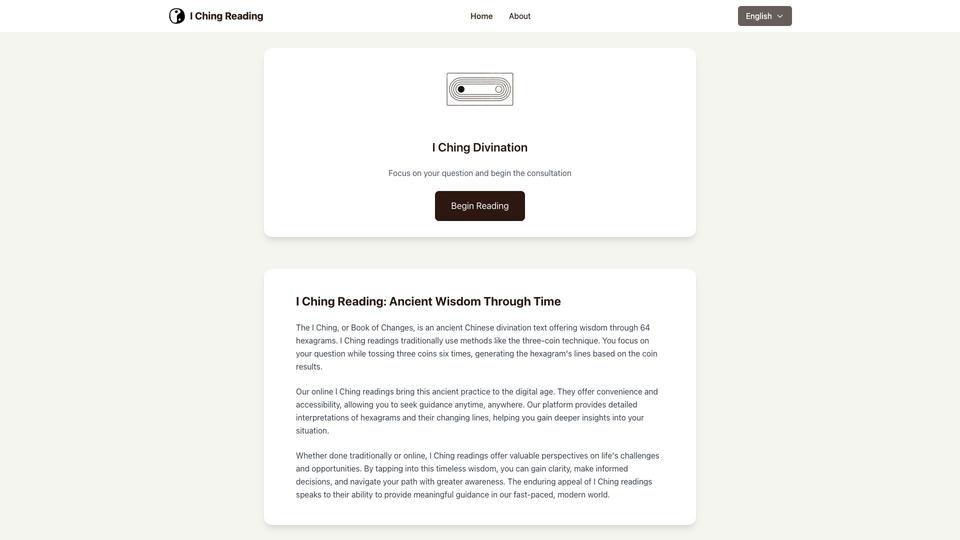I Ching Reading
Visit WebsiteAccess authentic I Ching divination online with this digital adaptation of the traditional Chinese Book of Changes. Get personalized readings and spiritual insights through an intuitive digital interface.

Analytics of I Ching Reading
- Total Visits
- 0
- Avg. Time on Site
- 00:00
- Bounce Rate
- 0.0%
- Pages per Visit
- 0.0
Traffic Sources
What is I Ching Reading?
I Ching Reading is a digital platform that modernizes the ancient Chinese divination practice of consulting the Book of Changes. It simulates the traditional yarrow stalk method digitally, generating hexagrams and providing detailed interpretations for personal guidance and decision-making.
How to use I Ching Reading?
1. Find a quiet space and center yourself mentally 2. Clearly formulate your question or concern 3. Begin the digital consultation process 4. Complete six consecutive castings to form your hexagram 5. Review the detailed interpretation of your reading 6. Reflect on the guidance provided
I Ching Reading Core Features
Digital hexagram generation system
Traditional yarrow stalk method simulation
Detailed hexagram interpretations
Changing lines analysis
Multiple language support
Instant consultation results
I Ching Reading Use Cases
Personal decision-making guidance
Life path exploration
Relationship advice seeking
Career direction consultation
Spiritual development practice
Daily meditation and reflection
FAQ from I Ching Reading
How often should I consult the I Ching?
This varies by individual. While some consult daily, it's recommended to avoid asking the same question repeatedly in a short period to prevent confusion. Focus on meaningful consultations when you need guidance.
Are online I Ching readings as effective as traditional methods?
Yes, online readings can be just as valid as traditional methods. The insight comes from the interpreter's connection with the I Ching's wisdom, not the specific method used to generate the hexagram.
What types of questions work best for I Ching readings?
Open-ended questions tend to yield more insightful readings. Instead of asking specific yes/no questions, focus on broader inquiries about situations, relationships, or personal development paths.



